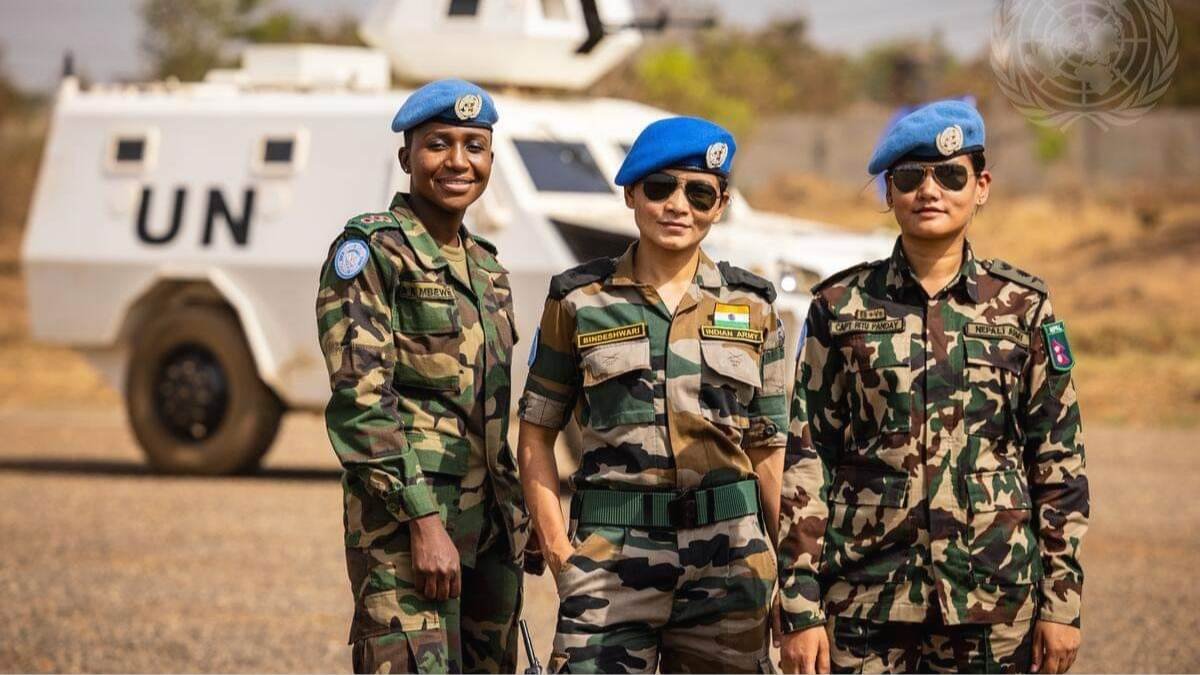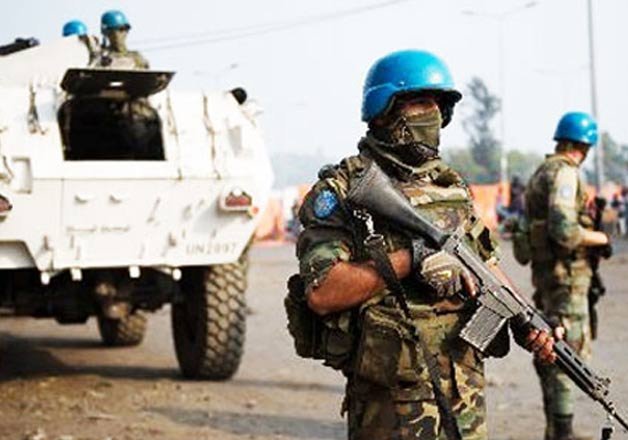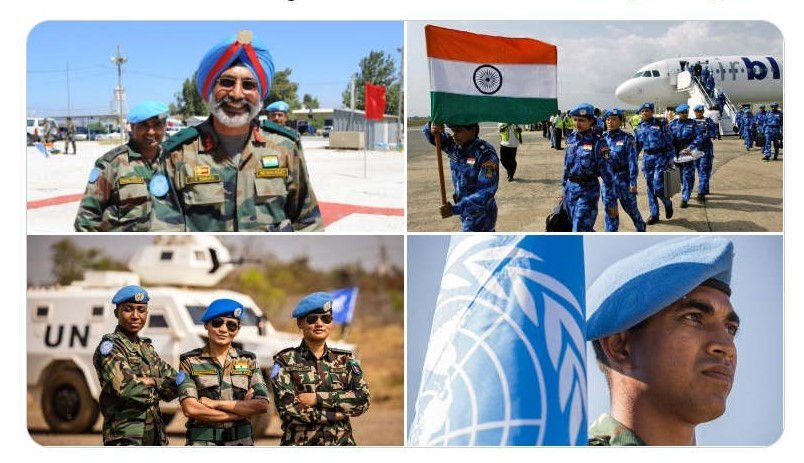India and United Nation’s (UN) Peacekeeping: Challenges and Impacts

India has a long history of participation in United Nations (UN) peacekeeping missions dating back to the 1950s. The country has contributed over 180,000 troops and police personnel to various UN peacekeeping operations worldwide, making it the largest contributor of troops among all UN member states. India’s participation in these missions has helped maintain international peace and security and significantly impacted the country’s defence preparedness.
Various Peacekeeping Missions that India has Participated In
The first UN peacekeeping mission in which India participated was the United Nations Emergency Force (UNEF) in 1956. The mission was established to maintain a ceasefire between Egypt and Israel following the Suez Crisis. India’s participation in this mission was significant as it marked its first involvement in a UN peacekeeping operation. Since then, India has participated in nearly 50 UN peacekeeping missions, including in countries such as Egypt, Congo, Lebanon, and Cyprus.
India has participated in several successful UN peacekeeping missions throughout its history. Here are a few examples:
UN Operation in the Congo (ONUC) – India contributed troops to this mission from 1960-1964, which was tasked with maintaining peace and security in the Congo during a period of political turmoil and civil war. Indian troops were praised for their professionalism and effectiveness in maintaining peace and security.
UN Peacekeeping Force in Cyprus (UNFICYP) – India has been contributing troops to this mission since 1964, which is tasked with maintaining the ceasefire between Greek and Turkish Cypriots and keeping the peace on the island. Indian troops have played a key role in maintaining stability and preventing further conflict in Cyprus.
UN Mission in Ethiopia and Eritrea (UNMEE) – India contributed troops to this mission from 2000-2008, which monitored the ceasefire between Ethiopia and Eritrea following their border war. Indian troops were praised for their effectiveness in maintaining peace and security and for their efforts in promoting reconciliation and cooperation between the two countries.
UN Mission in Sierra Leone (UNAMSIL) – India contributed troops to this mission from 2000-2005, which was tasked with maintaining peace and security in Sierra Leone following a decade of civil war. Indian troops played a crucial role in restoring the country’s stability and helping pave the way for free and fair elections.
UN Mission in Liberia (UNMIL) – India contributed troops to this mission from 2003-2018, which was tasked with maintaining peace and security in Liberia following years of civil war. Indian troops played a crucial role in restoring the country’s stability and helping pave the way for free and fair elections.
The country has contributed troops to various ongoing missions, such as the UN Mission in South Sudan (UNMISS) and the UN Peacekeeping Force in Cyprus (UNFICYP). India has also been actively involved in developing new technologies and equipment for peacekeeping operations and has been working with other countries to improve the capabilities of UN peacekeepers.
These are just a few examples of the many successful UN peacekeeping missions in which India has participated. In all these missions, Indian troops have been praised for their professionalism, effectiveness, and dedication to maintaining peace and security.
India has also been taking the initiative in training and capacity-building other countries for peacekeeping. India has been training peacekeepers from other countries to improve their capabilities and effectiveness in peacekeeping operations. This not only helps improve the overall capabilities of UN peacekeepers but also helps build a strong network of countries committed to peacekeeping.
UN Peacekeeping Missions: Challenges and Impacts
In recent years, India has also been pushing for reforms in UN peacekeeping. The country has been calling for more effective and efficient peacekeeping operations, with a clear mandate and adequate resources. India has also advocated for the protection of peacekeepers and the inclusion of more women in peacekeeping operations.
India’s participation in UN peacekeeping missions has helped maintain international peace and security and significantly impacted the country’s defence preparedness. The Indian armed forces have gained valuable experience and training in peacekeeping, humanitarian assistance, and disaster relief. The troops have been exposed to different cultures, languages, and operational environments, which has helped to improve their flexibility and adaptability. Additionally, peacekeeping operations have provided Indian troops with an opportunity to work with troops from other countries, which has helped to improve their interoperability and coordination.
Furthermore, India’s participation in UN peacekeeping missions has positively impacted the country’s defence industry. The Indian defence industry has gained valuable experience and expertise in peacekeeping and humanitarian assistance, which has helped to improve its capabilities and competitiveness. The industry has also formed partnerships and collaborations with other countries, which has helped improve its access to new technologies and markets.

However, India’s participation in UN peacekeeping missions has also had challenges. One of the main challenges has been the need for clear and consistent mandates for peacekeeping operations. Many UN peacekeeping operations have been launched with vague and unrealistic mandates, which have made it difficult for troops to achieve their objectives. Additionally, many peacekeeping operations have been launched in countries with weak or non-existent governments, making it difficult for troops to establish security and stability.
Another challenge has been the need for more adequate resources and support for peacekeeping operations. Many UN peacekeeping operations have been launched with inadequate resources, which has made it difficult for troops to achieve their objectives. Additionally, many peacekeeping operations have been launched in countries with poor infrastructure, making it challenging for the troops posted there.
Finally, India’s participation in UN peacekeeping missions has also been criticised for its lack of accountability and transparency. Many UN peacekeeping operations have been launched with vague and unrealistic mandates, which have made it difficult for troops to achieve their objectives.
The minister of External Affairs of India, Dr. S. Jaishankar, highlighted 4 key points for a multi-pronged approach to UN peacekeeping in the 21st century at the Security Council debate on technology and peacekeeping held in August 2021. These are as follows:
- Focus on operationally proven, cost-effective, widely available, reliable and field-serviceable technologies.
- Deploying a sound information and intelligence foundation to provide early warning and mobilisation of early response with precise positioning and overhead visualisation of mission environments.
- Ensure that technological improvements are continuous and are available on the ground, “in the gear peacekeepers carry and the weapons and tools they use”.
- Provide consistent training and capacity building of peacekeepers in the realm of technology needs attention and investment
In conclusion, India has a long history of participation in UN peacekeeping missions and has been a strong supporter of UN peacekeeping operations. India’s participation in these missions has positively impacted the country’s defence preparedness, defence industry and the countries where the peacekeeping operations occur. It also helped to enhance India’s reputation and standing on the international stage and build stronger relationships with other countries. India’s commitment to UN peacekeeping remains strong, as the country continues to play a vital role in maintaining international peace and security through its contributions to peacekeeping operations. It is important to note that India’s participation in UN peacekeeping is a part of its larger foreign policy objective of ‘peaceful co-existence’ and its commitment to multilateralism.









